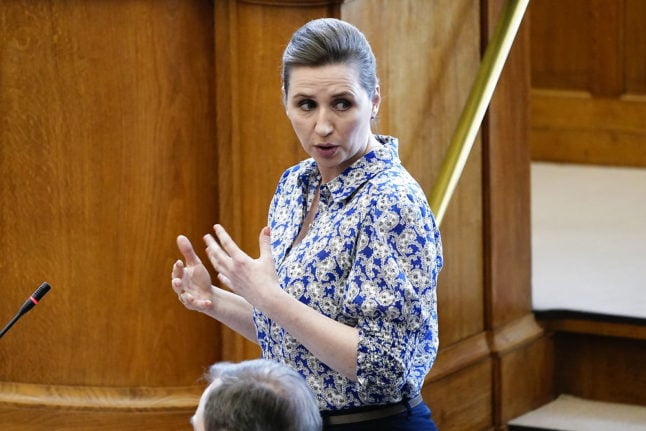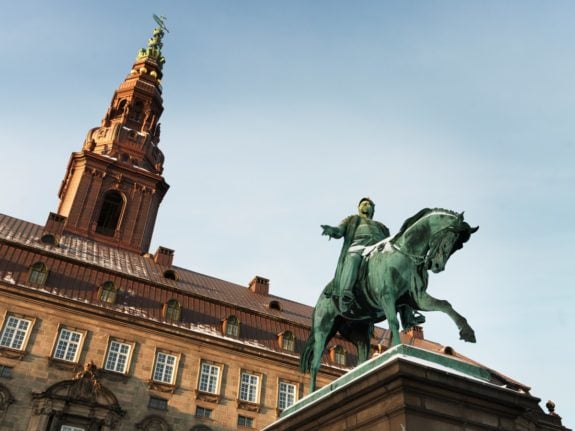The government earlier this month announced a June 1st referendum in which citizens will decide whether to overturn Denmark’s opt-out from EU defence. The referendum was called following Russia’s invasion of Ukraine.
Denmark’s opt-out – retsforbehold in Danish – is one of four EU special arrangements negotiated by the Scandinavian country, and has seen it abstain from participation in EU military operations and from providing support or supplies to EU-led defence efforts.
READ ALSO: Why does Denmark have four EU ‘opt-outs’ and what do they mean?
Frederiksen said that citizens should vote ‘yes’ to scrapping the opt-out, during debate in parliament.
“These times need togetherness, not opt-outs [Danish: sammenhold, ikke forbehold, ed.]. Partnership and not isolation. The Russia crisis is showing more than anything how important it is for Europe and the West to move closer together and take greater responsibility for our own safety,” she said.
A recent poll conducted by Voxmeter on behalf of news wire Ritzau shows dwindling support for revoking the opt-out amongst the Danish population.
38 percent of eligible voters would vote ‘yes’ to scrapping the opt-out, with 31 percent saying they would vote ‘no’ and 31 percent saying they didn’t know, according to the poll.
An earlier poll put 44 percent in favour of ending the opt-out. That support has therefore dropped by six points between polls.
Voters have twice previously voted against scrapping EU opt-outs, most recently in 2015.
Parliament has, in advance of the referendum, already voted to boost military spending significantly over the next decade.
“Denmark should always be ready to contribute in the future, even without the opt-out,” Frederiksen said.
The significance of the opt-out for Denmark is likely to grow in coming years as partnerships between EU member countries on areas such as military, cyber defence, training and joint purchasing of hardware increase.
The opt-out has been activated by Denmark at least 30 times since it was established in the 1993 following the Danish rejection of the Maastricht treaty. As a result, the country has not participated in various EU military missions in different parts of Africa, or a 2004 mission in the Balkan region, for example.
Frederiksen earlier said that scrapping the opt-out would send a strong signal from Denmark’s side and that this was a more important factor than the specific missions the country could participate in.
Denmark is already a NATO member.
Of the other political parties, only the far-right Nye Borgerlige and Danish People’s Party, and far-left Red Green Alliance are against scrapping the opt-out.



 Please whitelist us to continue reading.
Please whitelist us to continue reading.
Member comments